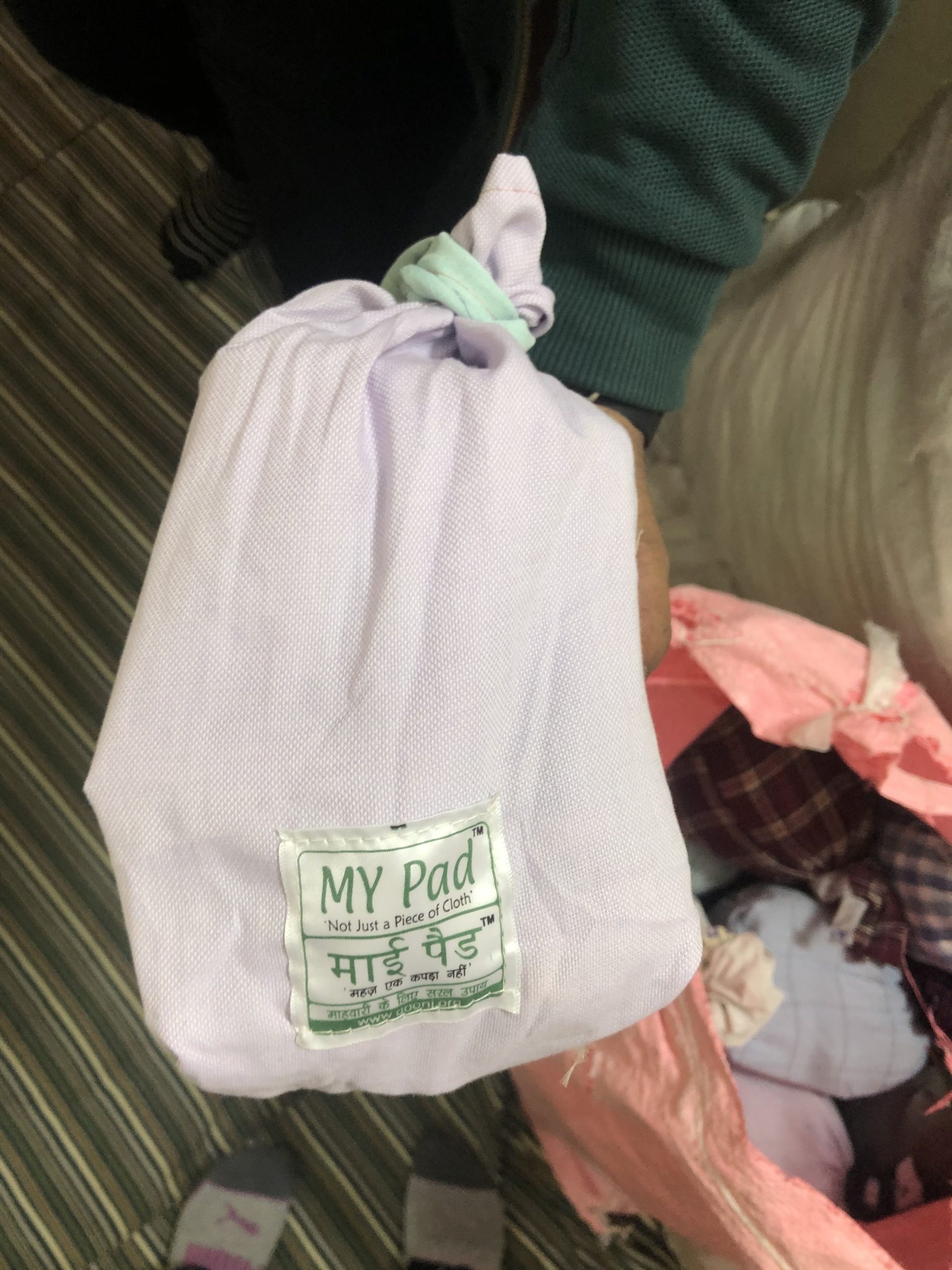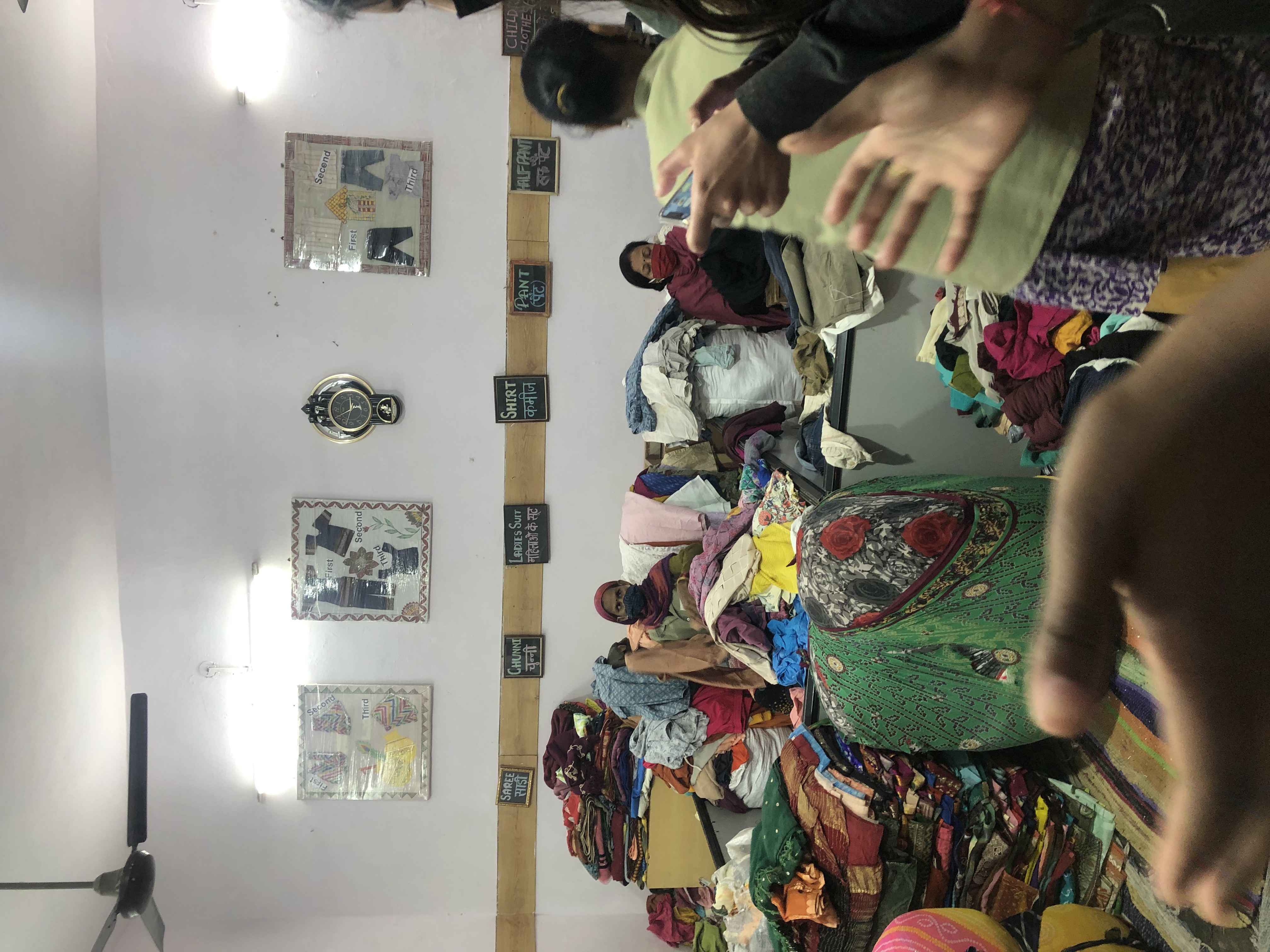
We Give Contributions, not Donations
More recently, people have been problematizing and complicating the often one-dimensional concept of giving charity or donating goods to an assumedly grateful recipient who is happy to receive anything. People in need of help and who are receiving goods or services from others deserve the right to have options to choose from, which provides dignity. They are still human beings who should have a say in what they receive and will use to improve their lives. My case study group and I went on an organized site visit to Goonj, where we received an informational walking tour of the working space. My case study group is one of three, and we are studying the intersection between health and environment. Goonj is a non-governmental organization located in New Delhi that designs and executes initiatives for social and environmental good, including Not Just A Piece of Cloth and Green by Goonj. I expected to see an upcycling and donation center that creates useful everyday items out of donated materials and that redirects donated clothing. My expectations did not come close to touching the comprehensive and multi-faceted work that Goonj does to dignify both village and urban dwellers who face issues rooted in their environment and to ameliorate the problem of surplus household waste. Goonj aims to dignify their recipients by carefully using language such as “contributing” instead of donating, ideology that positions Goonj as relieving contributors of their used materials or burdens to fix them and pass them forward for more use, and actions where they go into communities to partner with them on a collaborative project before providing them with contribution kits. The physical organization grounds were sprawled about many rooms, including some on floors that were above ground. Each separate sub-space had its own purpose and was organized according to its role. The workers were respectful of my group’s presence as exemplified in the situation when the stitchers stopped using their sowing machines when we entered the room to see the reusable pads they were making. The reusable, multi-layered pads are included in women’s kits, which has supplies like pads, two kinds of soap for personal and clothes-washing use, nail clippers, and lip balm. Goonj delivers menstruation pads and women’s kits along with de-stigmatizing educational seminars that community members attend. The stitches used to make the pads along with the pad design were made by the workers themselves, who are encouraged to experiment with how they make products to improve their functionality and appearance. When Goonj decides to partner with a rural or urban community, they let the community members know that they will not work with them unless they put any political, religious, or other internal conflicts aside to address a chosen problem together. Once they establish a solid connection with the community, Goonj staff works with leaders there to identify a shared problem and address it using a solution that most, if not all, of the community can help contribute to. After the community project is complete, Goonj presents the people who worked on the project with kits that are appropriate for their needs (e.g. wedding kit, student kit, work kit). The contribution model posits the project participants as laborers for their community who rightfully earn what they receive. Feeling inspired by their work and wanting to reciprocate the time and care we received, I purchased two upcycled wallets and one jean tote from the Goonj shop. I walked out of Goonj with an entirely new conceptualization of dignity, environmental solutions, community mobilization, and the intricate link between environment and health.

